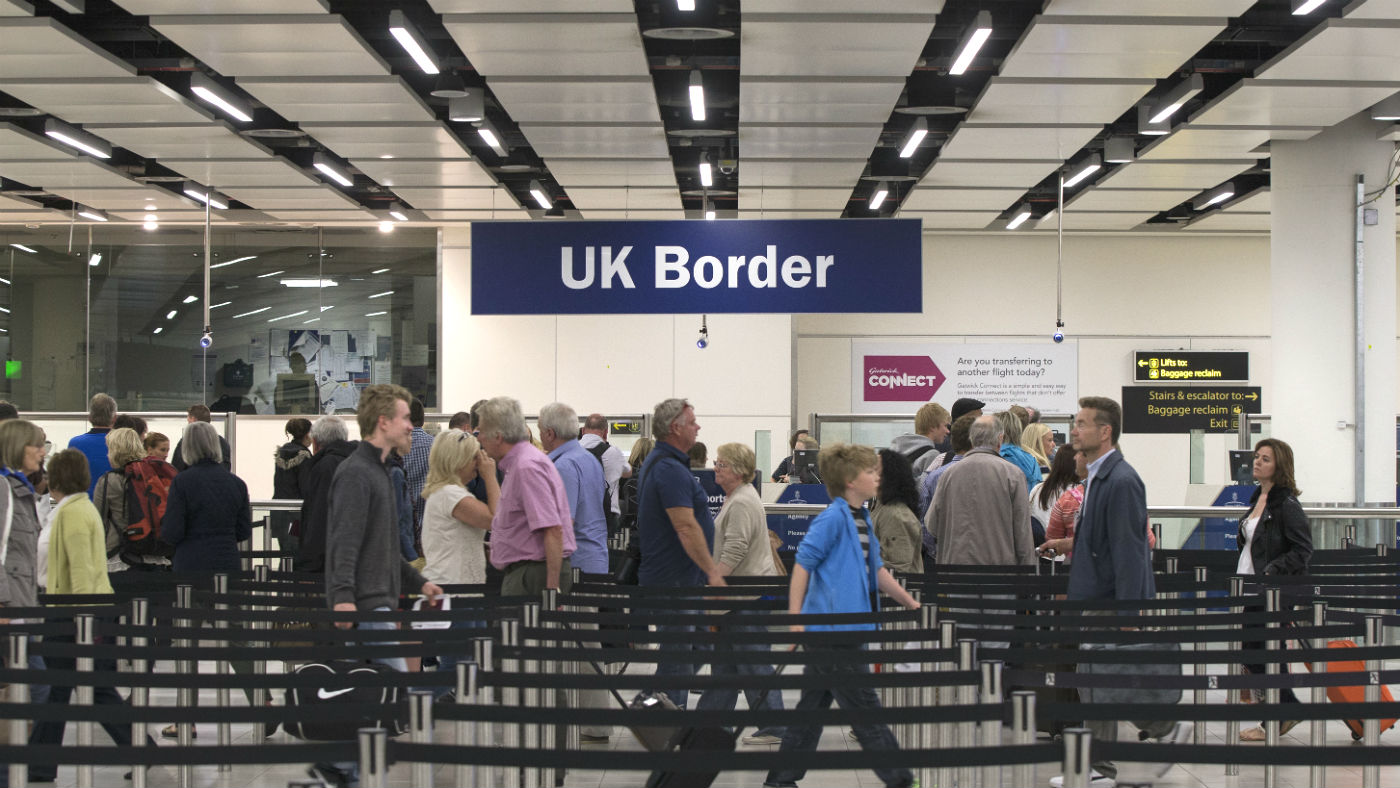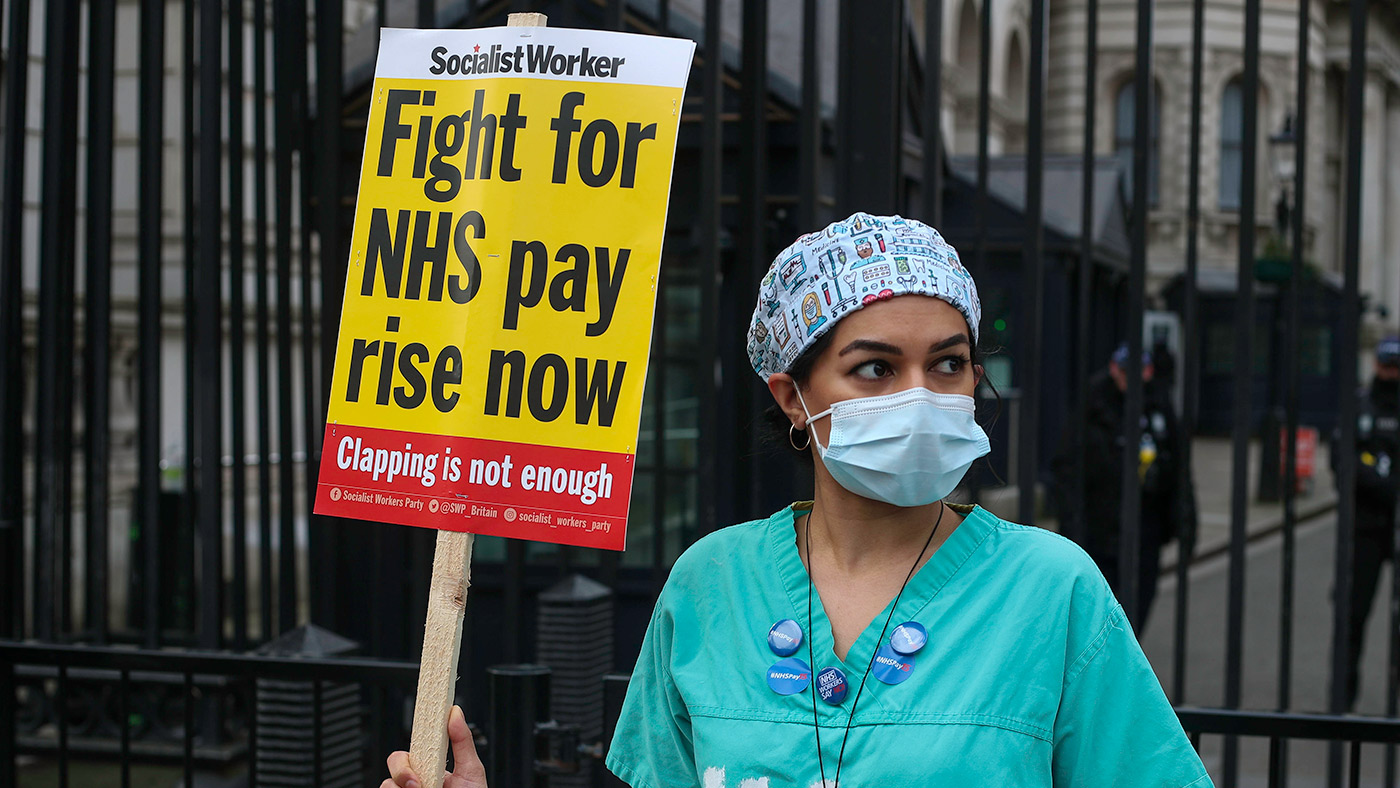‘Why do we have it in for prime ministers’ wives?’
Your digest of analysis from the British and international press

A free daily email with the biggest news stories of the day – and the best features from TheWeek.com
You are now subscribed
Your newsletter sign-up was successful
1. In defence of Carrie Johnson
Matthew Parris in The Spectator
on a rotten time
“Why are we so mean to prime ministers’ wives?” asks Matthew Parris in The Spectator. After following a Liberal Democrat canvasser in the Tiverton and Honiton by-election campaign, Parris was surprised to discover that Carrie Johnson “seemed to be an issue” for voters. “Who did she think she was?” they asked. Parris concluded that “we seem to have it in for prime ministers’ wives, we give them an often rotten time, and that’s mean, unjust and a tiny bit misogynistic”. Shakespeare’s Lady Macbeth is evidence that “suspicion of undeclared female influence in a marriage runs deep and ancient in our culture”, he argues, before recalling the hard time Cherie Blair got from the media. “I dislike our culture’s predilection for seeing something threatening in a prime minister’s wife with a mind of her own. So carry on Carrie.”
The Week
Escape your echo chamber. Get the facts behind the news, plus analysis from multiple perspectives.

Sign up for The Week's Free Newsletters
From our morning news briefing to a weekly Good News Newsletter, get the best of The Week delivered directly to your inbox.
From our morning news briefing to a weekly Good News Newsletter, get the best of The Week delivered directly to your inbox.
2. The public won’t be turned against strikers. They know who the real enemy is
Simon Kelner for The i
on striking sympathy
“This government, and its messengers in the right-wing media, have tried to characterise the rail workers and their bosses – or ‘barons’, as some newspapers call them – as class warriors and apologists for the Putin regime,” writes Simon Kelner for The i, “but this doesn’t seem to be getting much traction with the British people.” He believes that although Boris Johnson is “trying to turn worker against worker,” if you listen to Mick Lynch, the general secretary of the main rail workers’ union, “you hear a calm, pragmatic man” who is “no Arthur Scargill”. He reminds readers that “it wasn’t so long ago that we were invited to stand on our doorsteps and applaud the public sector workers who kept the country going during the pandemic” and “train drivers were essential to keep the supply chain working.”
A free daily email with the biggest news stories of the day – and the best features from TheWeek.com
3. A British bill of rights? This draconian plan is a rights removal bill
Sacha Deshmukh for The Guardian
on a hatchet job
The government’s “long-threatened, misleadingly titled and highly controversial bill of rights is finally here,” writes Sacha Deshmukh for The Guardian. The UK chief executive of Amnesty International says the Ministry of Justice has “taken a hatchet to the single most powerful rights tool this country has ever had” and “yet its press release announcing the bill suggests this is somehow good news for us all”. Replacing the Human Rights Act gives the public fewer rights and “could constitute a breach of the Good Friday agreement, upsetting a delicate balance of peace,” he warns. “Ignore the name of this new legislation,” he concludes. “It is a rights removal bill, and it will leave us all the poorer.”
4. Britain can’t claim to care about free speech if it extradites Julian Assange
Philip Johnston for The Telegraph
on a preposterous sentence
“Let’s face it, Julian Assange is not the most sympathetic of figures but his likeability is of no relevance to whether he is being properly treated by the criminal justice system,” writes Philip Johnston for The Telegraph. He reminds us that, last week, Priti Patel, the Home Secretary, signed an executive order “under which he can be handed over to the American authorities for trial on charges of espionage, for which he could face the clearly preposterous sentence of 175 years in prison”. The government’s acquiescence to the US is “worrying and comes on the eve of the publication today of a British Bill of Rights which is due to enshrine a commitment to free speech as one of its central provisions”, but free speech must “defend the right of journalists to hold the powerful to account for misconduct that they would rather the public did not know about”, argues Johnston.
5. Shut up and eat
The Times editorial board
on raucous restaurants
“London has the loudest restaurants in Europe, and the second loudest in the world, lagging only behind San Francisco,” says a leader comment in The Times. “Fully four fifths of them have a background din so loud as to render conversation impossible,” it reports. “These findings are striking, because the British, or at least their restaurant-going classes, do not tend to think of themselves as particularly noisy people,” it continues, “yet frequently, the capital’s restaurants are so loud that you might as well be dining next to a lawnmower, or on a motorbike.” This is “all very well for people with nothing much to say, and companions who would rather not hear it” but “for the rest of us, it can be a bit of a bore,” so “restaurants should remember that many of their customers want a meal, not a headache”.
-
 Political cartoons for February 20
Political cartoons for February 20Cartoons Friday’s political cartoons include just the ice, winter games, and more
-
 Sepsis ‘breakthrough’: the world’s first targeted treatment?
Sepsis ‘breakthrough’: the world’s first targeted treatment?The Explainer New drug could reverse effects of sepsis, rather than trying to treat infection with antibiotics
-
 James Van Der Beek obituary: fresh-faced Dawson’s Creek star
James Van Der Beek obituary: fresh-faced Dawson’s Creek starIn The Spotlight Van Der Beek fronted one of the most successful teen dramas of the 90s – but his Dawson fame proved a double-edged sword
-
 Celine Dion 'civil war' in New Zealand
Celine Dion 'civil war' in New ZealandTall Tales And other stories from the stranger side of life
-
 Los Angeles city workers stage 1-day walkout over labor conditions
Los Angeles city workers stage 1-day walkout over labor conditionsSpeed Read
-
 We will taste takeaways through phones by 2040
We will taste takeaways through phones by 2040feature And other stories from the stranger side of life
-
 Health care workers stage massive walkout in U.K. over low wages
Health care workers stage massive walkout in U.K. over low wagesSpeed Read
-
 Border Force strike may see airports close this Christmas
Border Force strike may see airports close this ChristmasSpeed Read More than 10,000 flights are expected to land at the affected airports over strike days
-
 National nursing strike: should the patient ‘always come first’?
National nursing strike: should the patient ‘always come first’?Talking Point Recent YouGov poll found that 65% of public approves of strike action
-
 Setback for Sturgeon as rubbish piles up in Edinburgh
Setback for Sturgeon as rubbish piles up in EdinburghTalking Point Mounds of litter have taken over city streets due to strike by refuse workers
-
 ‘The UK’s malaise will not end with the Prime Minister’s exit’
‘The UK’s malaise will not end with the Prime Minister’s exit’Instant Opinion Your digest of analysis from the British and international press